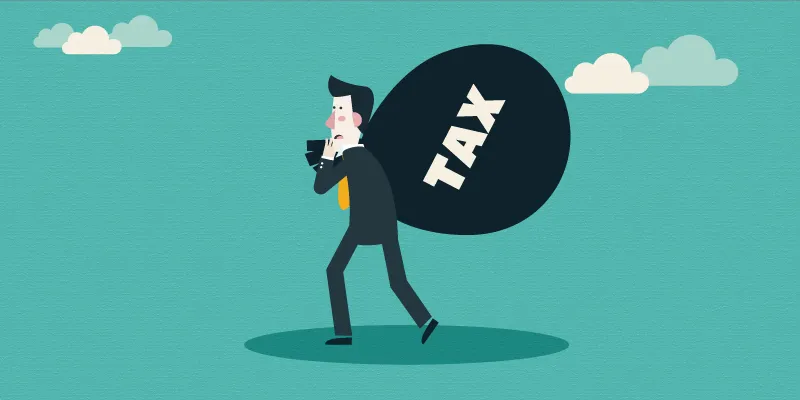Taxman wants to know details of post-demonetisation bank deposits in your tax filings
The mandatory disclosure of bank deposits made between November 9 and December 30, 2016 in the income tax returns is intended to sift genuine assessees from those who made large deposits disproportionate to their known sources of income.
In what appears to be an extension of its Operation Clean Money drive, the government has made it mandatory for taxpayers to disclose all cash deposits made during last year's demonetisation drive in their income tax returns for 2016-17.

Those filing their tax returns for the 2016-17 assessment year, with July 31 being the last date, are required to disclose details of all cash deposits in their bank accounts from November 9, 2016, the day after the demonetisation was announced, until December 30, 2016, the last date to deposit old Rs 1,000 and Rs 500 notes.
The Income Tax department has been putting out adverts, pushing posts on social media aggressively and even sending direct mailers to assessees urging them to disclose details of cash deposited in bank accounts aggregating to Rs 2 lakh or more in their tax returns this year.
Also read: Budget 2017: Jaitley proposes far-reaching reforms for transparency in political funding.
A Central Board of Direct Taxes member told YourStory,
This information will be matched with the information already available with the I-T department. All banks were directed during that period to disclose the names and numbers of account holders who deposited devalued currency worth Rs 2 lakh during the entire period. We already have a long list of individuals under the scanner as their accounts reflected high amounts only during this period, while they were more or less unused earlier.
Meanwhile, Aadhaar is no longer mandatory to file I-T returns as the Supreme Court on July 9 ruled that citizens without Aadhaar should be allowed to file returns. But only those who have seeded their Aadhaar returns can file returns online, and the rule that Aadhaar being mandatory for applying for PAN number stays.
“This court order is a relief as I do not have an Aadhaar number yet,” says Kavitha Rao, a Bengaluru resident. She also fears that her savings over the years, amounting to Rs 6.5 lakh, held in cash till the demonetisation and deposited in her account thereafter, could now be treated as unaccounted money.
“A part of this has been withdrawn from banks earlier and a part has been paid to me by relatives,” she claims. When she files her returns (as she has bank deposits that accrue interest and a joint housing loan), Rao fears she will be stained with a black brush.
The NDA government, which came to power with the promise to bring back black money held in foreign accounts (estimated by the CBI to be in the region of $500 billion) surprised everyone by its move to demonetise high-value notes last November. The exercise was also meant to push the country on the road to becoming a digital economy. A report by McKinsey, and the government estimated black money to be to the tune of a quarter of India’s gross domestic product in 2013.
To encourage people to disclose the black money held by them, the NDA government had extended an amnesty offer called Income Declaration Scheme that ended on September 30, 2016. It was a no-questions-asked, one-time compliance window, where after paying 50 percent of the declared income as taxes, the individual could convert the balance to white. A total of Rs 62,500 crore had been declared by an unspecified number of individuals across India, and the government enriched its kitty by Rs 29,000 crore-plus by way of taxes and penalties.
But, the sad part of this amnesty scheme was that it was never targeted at citizens such as Rao.
Soon after, on November 8 evening, Prime Minister Narendra Modi in an address to the nation, announced the demonetisation of Rs 1,000 and Rs 500 from midnight that day. Individuals were given time till December end to deposit old notes in their bank accounts but its value could not be more than Rs 2.5 lakh per person.
Even after the demonetisation, there was a chance for those with large sources of unaccounted incomes to come clean. Called the Pradhan Mantri Garib Kalyan Yojana, it would help make a contribution towards the poor too.
This amnesty window had been designed in such a way that the total declared amount would be taxed at 49.90 percent and 25 percent of the total declared amount had to be compulsorily deposited in an interest-free scheme called PMGKY 2016 for a period of four years. Only the balance 25 percent could be retained by the person making the disclosure. This money was to be channelled towards homes for the poor, fund schemes as well as welfare projects.
The PMGKY scheme, which ran from December 17, 2016 to March 31, 2017, was not much of a success compared to IDS, and failed to meet even a modest target of Rs 5,000 crore in declarations.
As the response to the PMGKY scheme was not along expected lines, Finance Minister Arun Jaitley proposed a law to confiscate benami assets—movable and immovable properties being held on behalf of another person. People planning to park their unaccounted wealth in the form of real estate or depositing demonetised notes in the names of their relatives, drivers, maids or through shell companies were brought under the Prohibition of Benami Property Transactions Act. Under this Act, such property became liable for confiscation and also punishable up to seven years with imprisonment and a hefty fine.
As the PMGKY scheme did not net the intended numbers, the government's latest attempt is to squeeze an opportunity out of the annual returns that are due to be filed by professionals, home-makers, small businessmen and other salaried classes by July 31.
As chartered accountant Hanumanth Rau puts it,
This information is a crucial input for the government as it will help filter a large number of normal salaried individuals and those that have abnormal increase in their savings accounts, however small it is. The 2016-17 financial year’s I-T return for individuals is a test case as the department is expected to go through most returns with a fine-toothed comb. Any increase in deposits will be treated as unaccounted money.
The I-T department has asked taxpayers to disclose cash deposits made in this period while filing their returns. This will also help account for all the income a person had, including so-called savings held in the form of cash at home.







